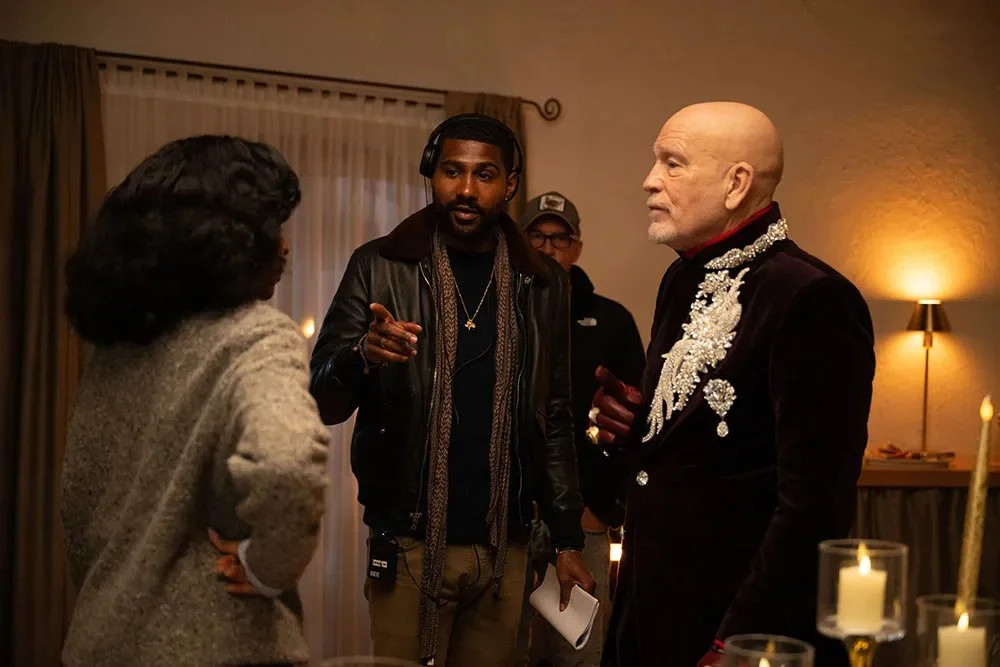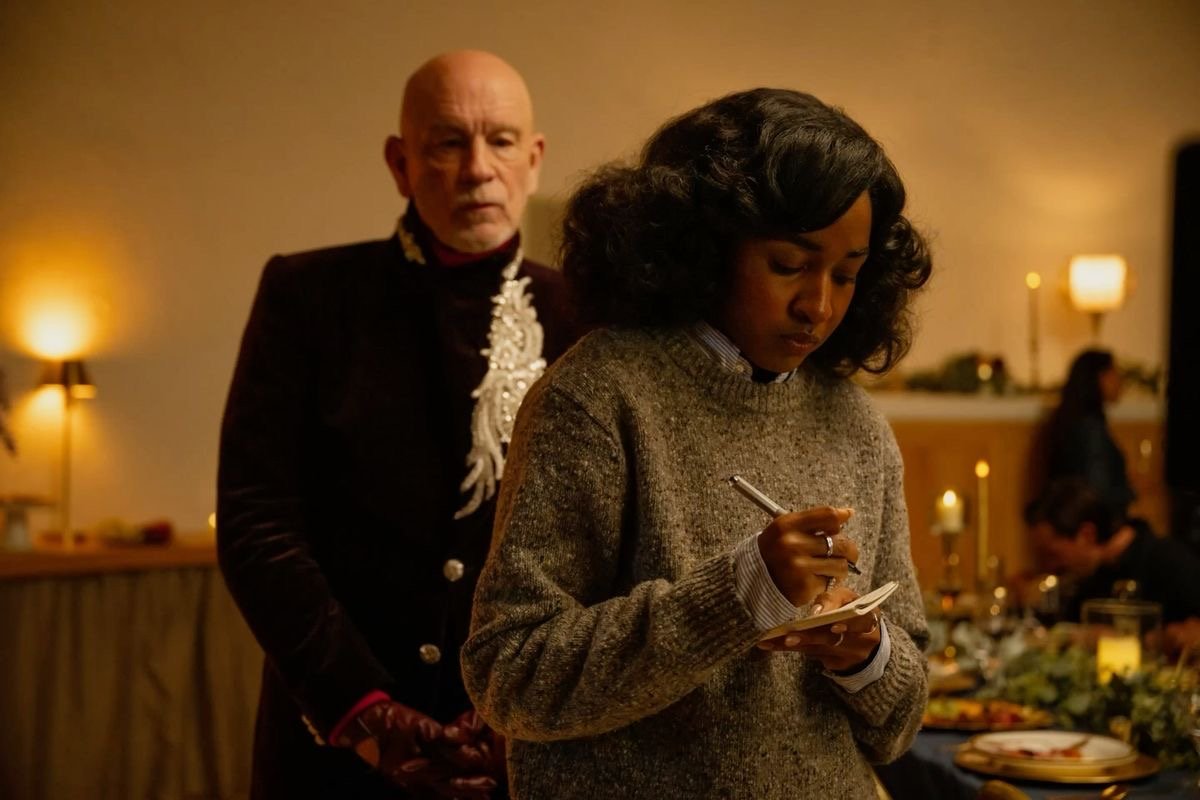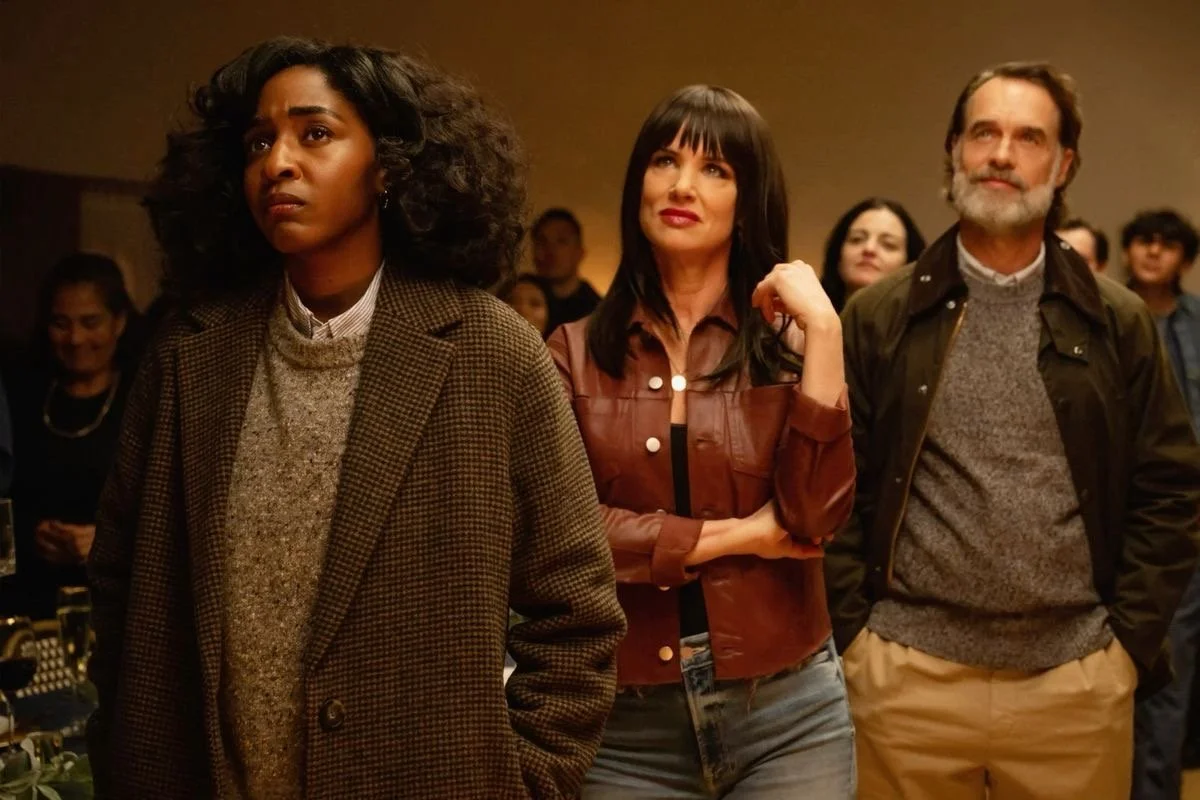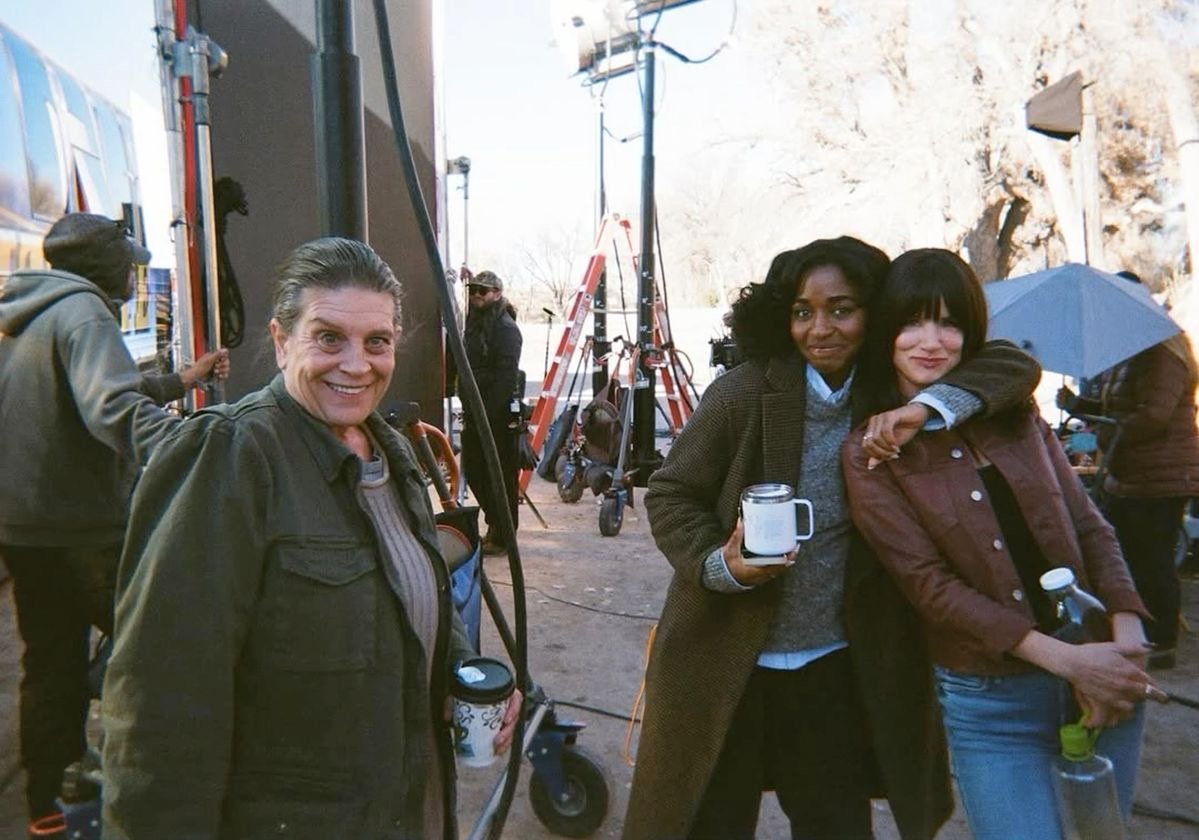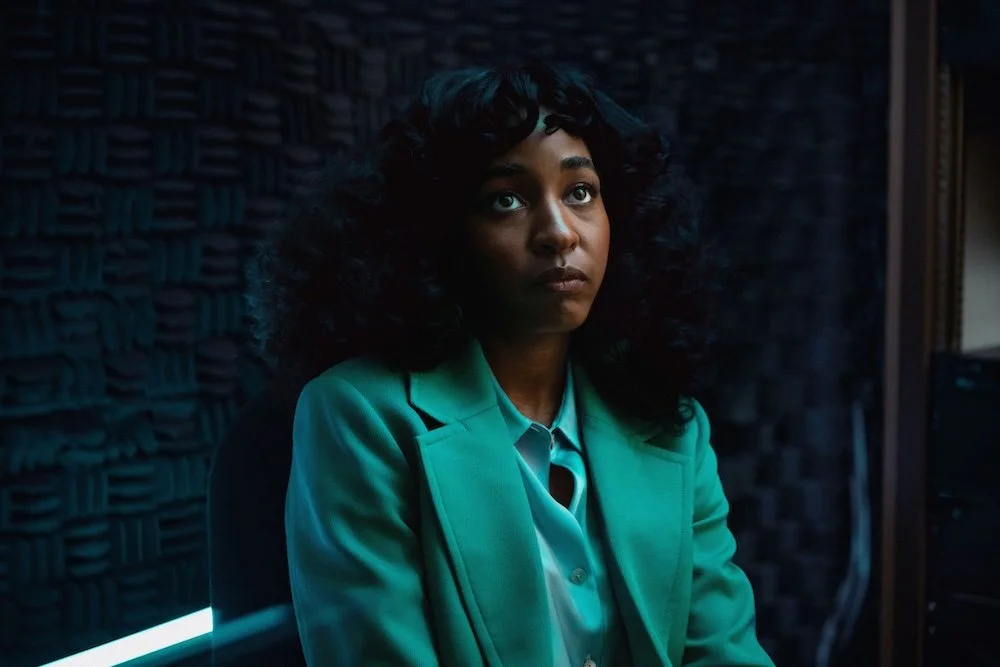Opus: Film Review — A Haunting A24 Thriller That Explores Identity & Obsession
by nxus Contributor, Ashley Mozingo, MBA Transformative Cultural Critic
Opus , Ariel (Ayo Edebiri), 2025 - Courtesy of Getty Images
Synopsis of the film:
Opus premiered at the Sundance Film Festival on January 27, 2025, and was theatrically released by A24 on March 14, 2025. An American thriller—Mark Anthony Green’s feature directorial debut—written and directed by Green himself. The film follows Ariel Ecton (Ayo Edebiri), a young culture journalist invited alongside her editor to the reclusive desert compound of former pop icon Alfred Moretti (John Malkovich), who vanished from the public eye decades ago.
Entranced by Moretti’s sudden return and the aura surrounding his long-anticipated comeback album, Ariel finds herself surrounded by a group of journalists, influencers, and devoted fans—each grappling with their own ambition and desire for exposure. As the weekend unfolds, she senses more than just eccentricity: Moretti's compound is a facade masking a manipulative, cult-like undercurrent.
I don’t usually volunteer to watch horror films. To make it through Opus, I had to armor myself with the gaze of a reviewer. Watching critically softened the terror.
In Latin, the word "opus" means "work," referring to any product created through effort, presumably any artistic work, especially one on a large scale.
Beneath the gore horror stance, Opus tells a truth about the present-day expectations we place on artists: the demand for constant output, the entitlement to their privacy, the belief that slowing down equals sabotage. It magnifies the extremes people will go to belong to something. And it begs the question: what would it take for us to live in a world where artists could create without obsession, without being consumed?
On set of Opus from left to right, Ayo Edebiri, Director Mark Green, John Malkovich
What first pulled me in was Ayo Edebiri. I’ve adored her screen work—she fully embodies her characters in a way that feels intimate and alive. That’s what gave me the courage to face this horror production voluntarily. I watched from start to finish, eyes wide open, even when I wanted to close them.
Most critics seemed to settle for the obvious reading: Opus is a straightforward warning about the dangers of celebrity culture. I saw that too. But for me, a deeper, more devastating theme emerged—one that made me drop to my knees. The real horror was not the blood or the screams, but the revelation that everything Ayo’s character achieved had been part of a white man’s plan all along. That pain felt personal. To realize your labor and your art has been orchestrated for someone else’s agenda—that is grief. That is horror.
Opus 2025 - from left to right, Murray Bartlett, Ayo Edebiri, Juliette Lewis, and Melissa Chambers
The film’s death scenes left me equally unsettled, not just for their brutality but for their objectifying murder imbalance. The women’s deaths were drawn out, lingering on suffering as spectacle, while the men’s were swift, brutal but brief. One man was killed on a massage table—in more of a swifter shot, then off-camera. A woman, by contrast, endured an allergy-related death, only to be discovered stuffed inside a bean bag chair, her torture turned into a power stance. This isn’t new in film and television: women’s pain stretched out for dramatic effect, reduced to violence or romance. But watching it here, I felt the weight of how routine it has become to treat women’s bodies as currency in storytelling. On the other side, I saw it as a raw look at the dangers of allergy culture, and how devastatingly important it us for us to take them seriously.
Opus 2025 - from left to right, John Malkovich, Ayo Edebiri
John Malkovich
A24’s touch was unmistakable—each shot framed like its own painting, each lens angle adding weight to the narrative. I found myself marveling at how the cinematography did its part to tell the story alongside the actors. Performances were strong across the board, especially Ayo’s and Malkovich’s. There was a an eerie tenderness in delivery in every exchange the two shared on screen.
For anyone building a Halloween/Spooky watchlist, Opus pairs well with other recent A24 titles that stretch the horror genre in unexpected ways. Talk to Me (2022) delivers a sharp, modern take on possession stories, blending supernatural scares with the raw ache of grief. A friend of mind invited me to watch Death of a Unicorn (2025), starring Jenna Ortega and Paul Rudd and I throughly enjoyed it. I was terrified, mystified and I equal parts laughed and cried. With its surreal mix of myth and market forces, it asks unsettling questions about what happens when wonder itself is exploited.
Each film offers its own take on fear—whether personal or cultural —and together they underline why A24 continues to dominate conversations around contemporary horror.
Opus 2025 Ariel (Ayo Edebiri) - Courtesy of Getty Images
Some people dismissed Opus, citing its confusing blend of thriller and musical. But this isn’t a musical in the traditional sense. The performance elements are woven in because the story itself is about performance—celebrity, spectacle, the artifice of fame. To reduce it to genre confusion is to miss its ambition.
Slight Spoiler: At first, I was relieved that Ayo’s character survived—to live, to tell her story. But that relief shattered when it was revealed that her dream, from aspiring journalist to New York Times bestseller, had been another piece of the antagonist’s scheme. My heart ached for her. I wanted to hug her, to tell her that her brilliance as a writer is no less real for being manipulated. Still, what a plight.
Opus is now streaming on HBO Max.
A special thank you to independent theaters and a warm bravo to Mark and A24 studios for continuing to create and share.
Opus Director & A few Members of the Cast
OPUS movie trailer:
OPUS Movie Trailer
Contributor Bio:
Ashley Mozingo is a writer and cultural critic whose work examines the intersections of identity, creativity, and social change. With experience in digital media, public administration, and brand storytelling, she brings a critical yet accessible lens to the ways culture shapes community and possibility. At nxus, Ashley contributes analysis and narrative that highlight underrepresented voices and challenge audiences to see transformation as both personal and collective.

